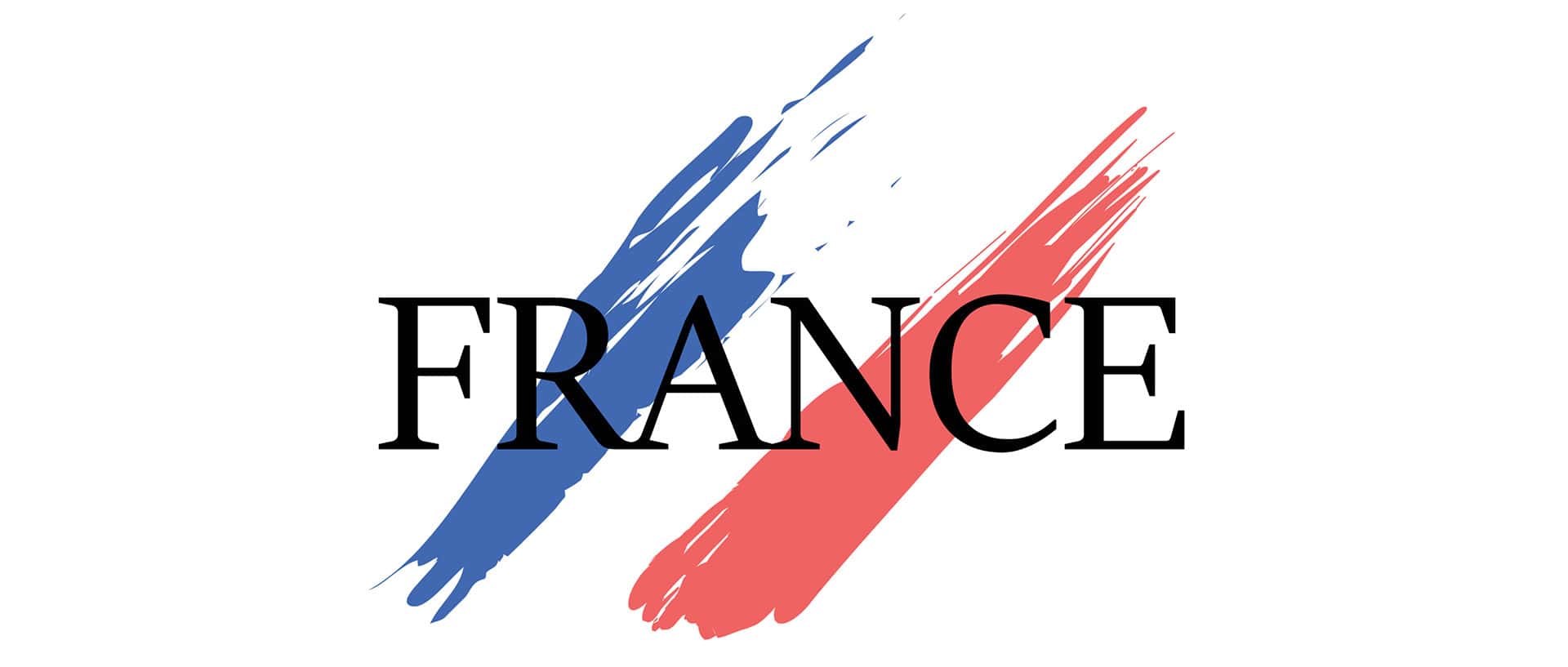In the mid-1990s, France faced a severe heroin epidemic. In a groundbreaking move, the French government permitted all registered medical doctors to prescribe buprenorphine, a medication for opioid addiction treatment, without requiring any special education or licensing.
The pharmacological profile of buprenorphine is also significant. It is a partial agonist at the μ receptor, making overdose less likely. Its administration is sublingual, and the medication is effective in reducing cravings and stabilizing patients.
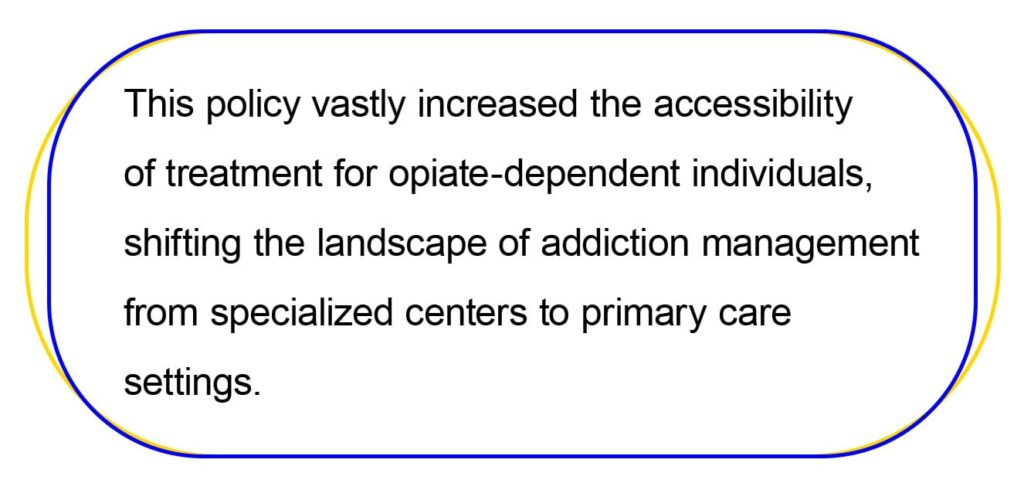
By empowering general practitioners to prescribe buprenorphine, France made significant strides in combating the heroin crisis. The approach was bolstered by an effective integration of physician compensation mechanisms, pharmacy services, and medical insurance funding, all of which played a critical role in minimizing barriers to buprenorphine treatment.
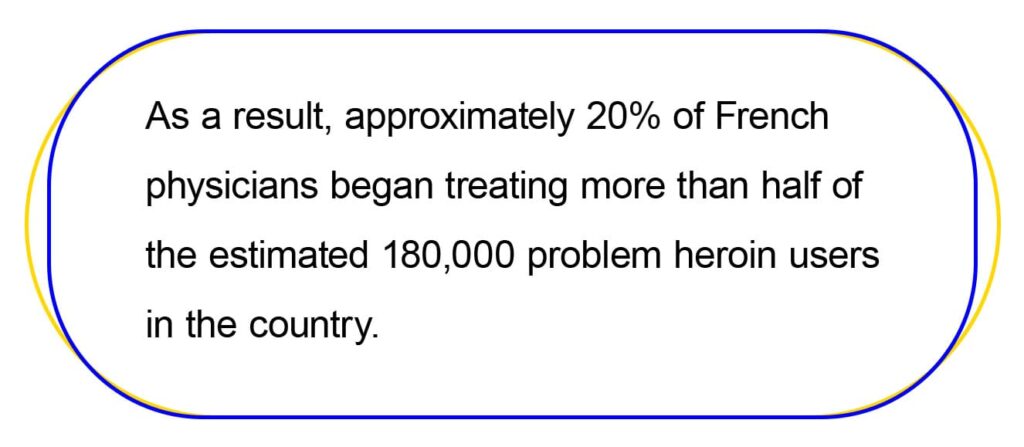
While the increased availability of buprenorphine led to some challenges, such as the potential for intravenous diversion, the overall impact on public health was overwhelmingly positive. The adoption of buprenorphine maintenance treatment in a relaxed regulatory environment contributed to a significant decline in opiate overdose deaths, showcasing the effectiveness and safety of this approach.
France’s strategy in addressing its heroin epidemic through widespread access to buprenorphine treatment in primary care illustrates a successful model for other nations grappling with similar challenges. The French experience demonstrates the potential of policy innovation and healthcare system adaptation in managing public health crises, particularly in the realm of addiction treatment.
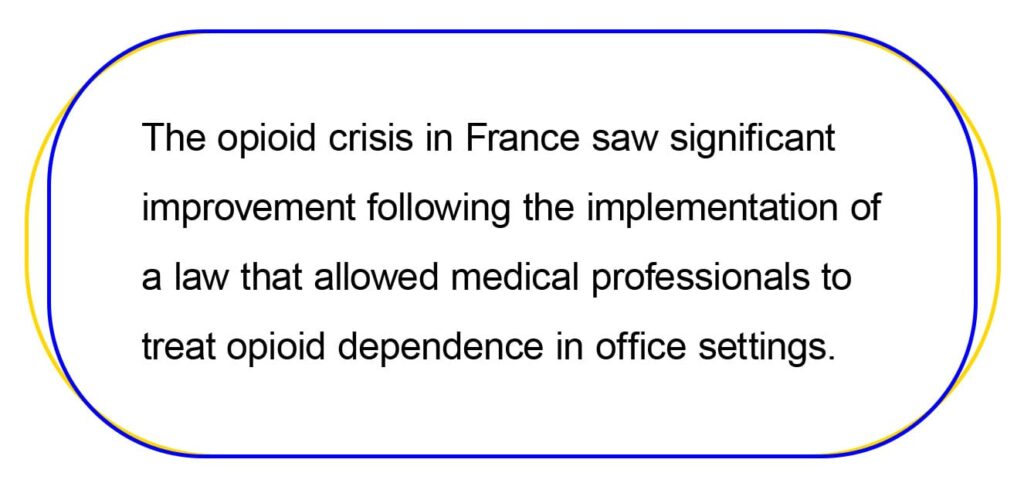
This change was primarily due to the widespread use of buprenorphine, a medication for opiate addiction treatment.
Before 1995, the treatment of opioid dependence in France was largely confined to specialized centers, limiting access for many patients. This situation changed dramatically when buprenorphine became available for prescription by general practitioners (GPs) in primary care settings. This approach significantly increased the accessibility of treatment, as GPs could prescribe buprenorphine without any special education or licensing, just like any other medication.
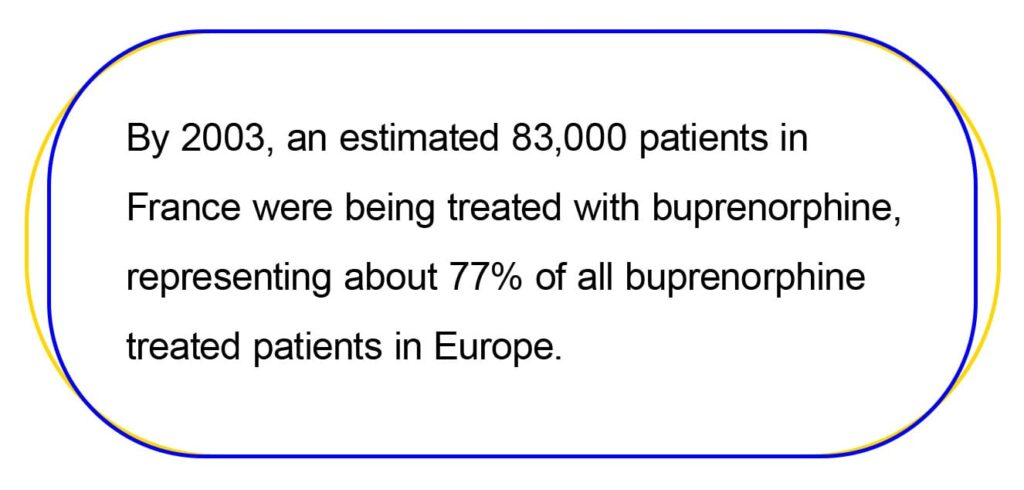
The majority of these patients received their prescriptions from GPs, and the medication was dispensed in community-based pharmacies. This relaxed regulatory context made treatment easier to access and contributed to a substantial reduction in opioid overdose deaths.
The French health care system played a crucial role in facilitating this treatment approach. The system is organized on a pay-per-service basis, with universal medical coverage ensuring access to marginalized individuals. Opiate dependence is recognized as a chronic illness, allowing full coverage of treatment costs by Social Security. Additionally, pharmacies provide crucial support, including the option for supervised daily medication dispensing.
Despite its success, the French model of buprenorphine treatment has faced challenges, such as the risk of diversion and misuse, particularly through intravenous injection. However, studies suggest that the overall benefits, including reduced heroin use, improved social conditions for patients, and decreased overdose deaths, outweigh these concerns.
In summary, the French approach to addressing the opioid crisis, through the widespread and accessible use of buprenorphine in office-based settings, has shown significant public health benefits, illustrating a successful model for other countries grappling with similar challenges.
References
Vox – France had a big heroin epidemic in the 1980s and ’90s. Here’s how the country fixed it.
https://www.vox.com/policy-and-politics/2018/4/17/17246484/opioid-epidemic-buprenorphine-france
NIH – Why buprenorphine is so successful in treating opiate addiction in France
https://pubmed.ncbi.nlm.nih.gov/17915074/
NARCAD – Why Buprenorphine Is So Successful in Treating Opiate Addiction in France
https://www.narcad.org/uploads/5/7/9/5/57955981/bupe_effort_in_france_reduces_overdose.pdf
Fatseas, M., Auriacombe, M. Why buprenorphine is so successful in treating opiate addiction in France. Curr Psychiatry Rep 9, 358–364 (2007).
US federal government passings new laws to make it easier for doctors to prescribe buprenorphine
Addiction Gap is a certified 501(c)(3) nonprofit
